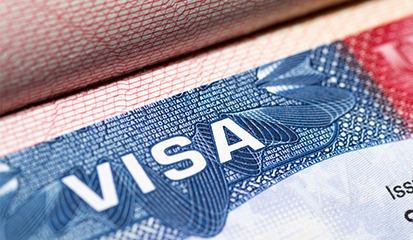
USA
Whatever you have heard about the U.S., it’s true. And getting an education there is probably the simplest and most reputable way of being a part of the great American dream. And also, US education is eminently affordable, if done the right way. The US is one of the world’s leading nations in industry and technology. The economy is currently the strongest and the latest advances in the technologies happen here. The US is a nation of diverse cultures; 1 out of 15 people, or more than 20 million people living in America, were born elsewhere. There are more than 4,000 colleges and universities in the US offering degree programs in more than 600 subjects. More than 600,000 students from around the world choose to study in the United States.
WHY STUDY IN THE UNITED STATES?
- Quality: U.S. colleges and universities are known worldwide for the quality of their facilities, resources, and faculties. Accreditation systems ensure that institutions continue to maintain high standards.
- Choice: The U.S. education system is unrivalled worldwide in the diversity of choices it offers in terms of the types of institutions, academic and social environments, entry requirements, degree programs, and subjects in which you can specialize. But more importantly, there is also the option for students to move from one institution to another.
- Value: As an investment in your future, a U.S. degree offers excellent value for the money. A wide range of tuition fees and living costs, plus some financial help from colleges, have made study in the United States affordable for thousands of students.
- Flexibility: One of the most distinctive features of U.S. universities and colleges is the flexibility in choice of courses within a college or university, but more importantly there is also the option for students to move from one institution to another. Completing the first two years of a degree at one institution, usually a community college, and then moving to another, is very common.
Types of Program
Associate’s Degree: The associate degree usually takes two years to complete. Associate degree programs are offered at two-year colleges known as community colleges. After two years you could then transfer into the third year of a four-year bachelor’s degree program.
Undergraduate (Bachelor’s Degree): Most bachelor’s degree programmes can be completed in four years of full-time study, though some students take slightly less time to finish, while others may take longer. Four-year colleges and universities offer bachelor’s degree programs, with a small number also offering associate degree programs.
Graduate (Master’s Degree): A master’s degree can be completed in two years of study following the bachelor’s degree. Master’s programmes often require a major research paper in addition to coursework. Admission to a graduate program usually requires a minimum of 16 years of formal education. That is, 12 years of secondary schooling and further 4 years of college education.
Doctoral Degrees: Doctoral programmes require an additional three to five years of study beyond the master’s degree. They are the highest degrees awarded and require coursework as well as original research and a dissertation.
US universities offer two main semester intakes:
Fall Semester (September/October): This is the main intake and almost all programs are offered at this time. More financial aid is also available for this semester and funds are allocated for the entire year during this time.
Spring Semester (January/February): This is the mid-year intake. There is limited financial assistance available for this semester as most universities allocate funds to projects in the Fall semester.
Some universities also have a Summer intake around July.
Types of Institutions
Community Colleges provide two-year associate degree programs, usually called the associate of arts (A.A.) or associate of science (A.S.), as well as excellent technical and vocational programs.
Four-year colleges are undergraduate institutions offering academic programs leading to a bachelor’s degree.
Private Universities are funded by a combination of endowments, tuition fees, research grants, and gifts from their alumni. Tuition fees tend to be higher at private universities than at state universities. The oldest universities (Harvard, Yale, Princeton) were and still are private.
Public Universities are state-controlled and give preference to in-state students. They tend to be less expensive but usually assess added out-of-state fees to students from other states and countries.
Institutes of technology or polytechnic institutes offer specialized programs in sciences and engineering, in addition to basic sciences, humanities and the social sciences, at both the graduate and undergraduate levels.
Work While You Study
International students are allowed to work on campus and off campus upto 20 hours per week on academic time and full time (40 hours per week) on holiday times. Students with good academic standing have a better chance. Off campus job requires approval from US Immigration & Naturalization Service. In addition, there may be opportunities for practical training which entail a period of authorized employment, designed to allow foreign students to have professional work experience related to their field of study.\
Financial Aid and Scholarships
It is important to understand that most universities offer financial assistance to international students based primarily on merit and rarely on need. The amount, and type of assistance offered varies, based on the university, department and level of study. Assistance of funds is more likely in Graduate studies and less in Undergraduate courses. Also funds are more likely to be available in fields like Engineering, Physical Sciences and Biological sciences, rather than in courses like Humanities, Social Sciences and management.
1. Scholarships
2. Assistantships (Teaching or Research)
3. Fellowships
Admissions
Each institution has its own set of admission requirements, but the minimum usually includes the following:
- Completed Application Form;
- Application Fee ($20 – $200);
- Proof of Secondary School completion (usually 12 years of schooling for undergraduate and 16 years education for graduate);
- Certification of English Language Proficiency (TOEFL/IELTS);
- SAT/ACT Score (Undergraduate students only);
- GRE/GMAT Score (Graduate students only);
- Evidence of Financial support (bank balance certificate);
- Minimum 2 Letters of Recommendation from previous school or college;
- Statement of purpose (SOP);
- Passport copy;
- Students Resume/Bio-data;
- Work Experience Certificate (if applicable).
Visa Interview
After you have scheduled your interview at Nabil Bank, bring your yellow fee receipt to the U.S. Embassy at your scheduled interview time. You may also bring any additional documents to the interview that you feel many support your case. In most cases, the visa will be issued within a few hours or days of the submission of the application. In some instances, the process may take longer depending on the time of year, consular caseload or other factors. If your application is denied, you should ask the Consular Officer for a “written denial decision.” This will provide you with the official reason for your visa denial. In addition to the application fee, student visa requires additional issuance fees of $200. This is paid in cash (rupees) at the U.S. Embassy only after a consular officer has told you that you qualify for your visa.
Application Process
To commence your study abroad application process at King's Institute, kindly adhere to the following four steps:

step
Research and Plannning

step
Application & Admission

step
Visa And Travel

step
Preparing For Departure
We welcome any inquiries you may have. Please do not hesitate to contact us for further assistance
Thank you for your interest in starting the application process with King's Institute. Please take a moment to fill out the form below and a representative from our team will be in touch with you shortly.
